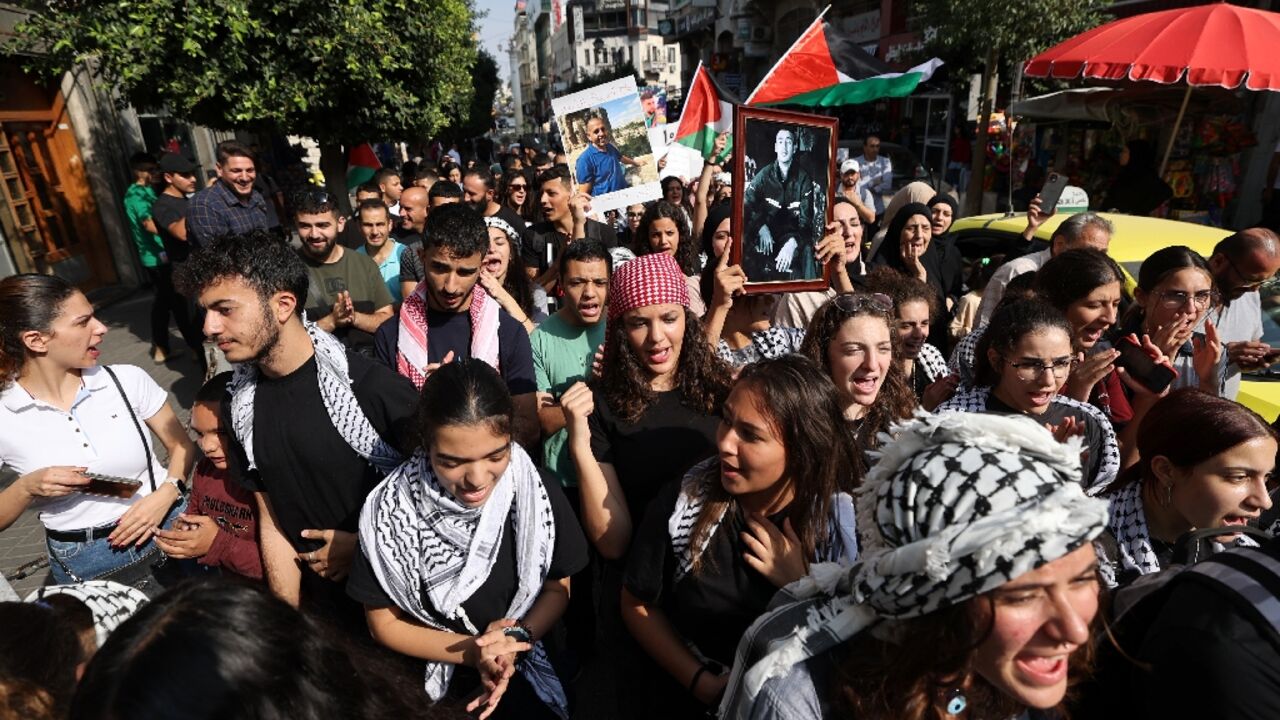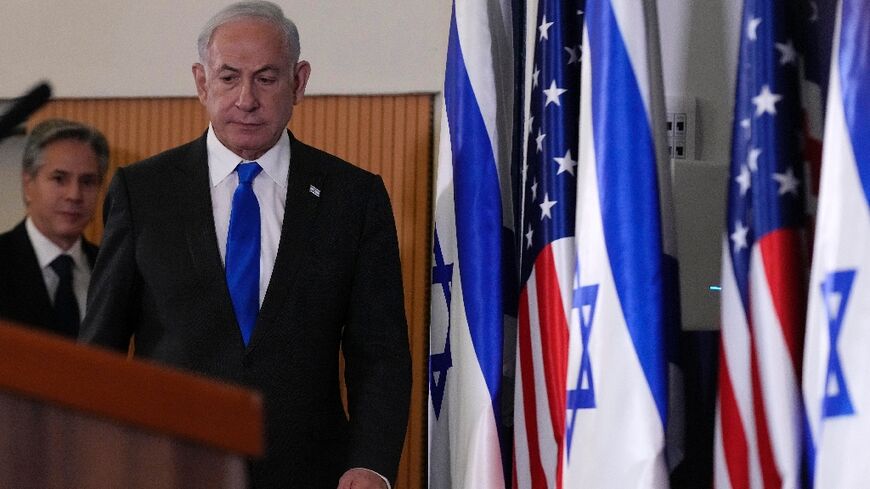Families of Palestinian prisoners agonise amid Gaza bombardment

Thousands of Palestinian families are caught between hopes that prisoners in Israeli jails could be freed in a swap for hostages held by Hamas, and horror over Israel's bombardment of Gaza in response to an attack by the militant group.
Wafa Abu Ghoulmi said she loves her husband Ahmed, who is serving nine life sentences over the 2001 killing of an Israeli minister, and wants to see him.
But she is also suffering from the impact of the conflict.
"When I saw the deaths, the destruction, the families torn apart in Gaza, I felt pain, because it is a very high price to see my husband again," she told AFP at her home in the occupied West Bank.
Israel says Hamas seized more than 230 hostages when its gunmen stormed across the border on October 7 and killed more than 1,400 people, mainly civilians.
In response, Israel has declared a war to destroy Hamas, pounding the Gaza Strip with air and ground attacks that the health ministry in the Hamas-run territory says has claimed more than 8,500 lives, including more than 5,600 women and children.
The hostages have become a hot-button issue for the Israeli government, with pressure building since Hamas said it was ready to free its detainees if all Palestinians in Israeli jails are released.
The militants have freed four women and said late Monday that more foreign detainees would be released in coming days. The Israeli army said Monday it had rescued one detained soldier in Gaza during an incursion.
- Thousands wait -
Activist groups say there are at least 6,600 Palestinians in Israeli jails, including 550 serving life terms.
On top of this, nearly 1,700 arrests have been made this month in the West Bank since the attacks, among them women and children, according to the Palestinian Prisoners Club.
But Israel's Prime Minister Benjamin Netanyahu has so far showed no public interest in the Hamas offer. The army has pushed ahead with attacks.
"Even if my husband and the rest of the prisoners are released, I feel that the eyes of the families of the martyrs killed by Israel in Gaza will continue to follow us," said Abu Ghoulmi, who is in her 50s.
This is the biggest hostage seizure by Hamas since its formation in 1987. But past attempts at Israeli-Palestinian prisoner exchanges have been fraught.
The last swap took place in October 2011 when 1,027 Palestinians were exchanged for Israeli-French soldier Gilad Shalit, who spent five years detained in Gaza. Two Israeli men who entered Gaza in 2014 and 2015 are believed still detained.
The Hamas chief in Gaza, Yahya Sinwar -- himself freed as part of the Shalit deal -- said Saturday that Hamas was ready for an "immediate" exchange.
- 'Tears of joy or sadness' -
Khalida Abu Sattha, 45, also hopes she will soon see her husband Mohammad -- imprisoned for life since 2001.
She says she has been glued to her TV since October 7, pondering how each development will affect her husband. But she wonders whether she will greet him "with tears of joy or sadness for all the deaths".
Abu Sattha said she only diverts her gaze to answer phone calls from "loved-ones and friends or families of prisoners who say they hope for a new exchange with Israel".
She is certain it will happen, but also dreads the thought. "Our happiness would not be complete, we'll have the looks of the families of the victims of the war hanging over our head."
Protests and press conferences by relatives of the Israeli hostages are weighing on Netanyahu, compounded by fears that detainees will be caught in the crossfire.
Hamas has said 50 of the hostages have been killed in Israeli strikes. AFP could not independently verify this figure.
Political analyst George Giacaman from Birzeit University in the West Bank said the release of any prisoners by Israel would represent a major victory for the Palestinian movement.
"If Hamas succeeds in releasing the prisoners, it will be more popular among Palestinians," he said.
"But the question is, does Hamas have any guarantee that Israel will not arrest the prisoners again?"




